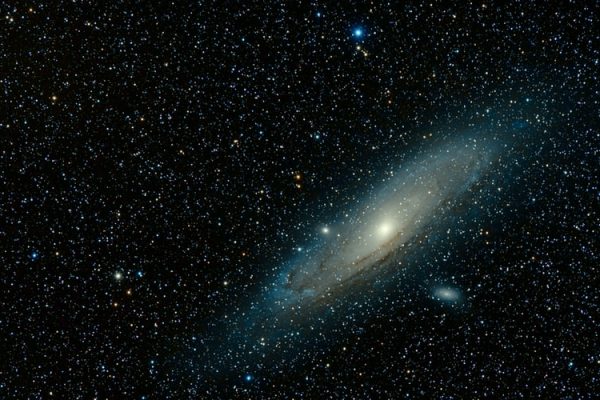The reality is that modern science has discredited a materialistic, reductivist, atheistic worldview, by furnishing us with multiple lines of evidence against it.
The reality is that modern science has discredited a materialistic, reductivist, atheistic worldview, by furnishing us with multiple lines of evidence against it.
Less than a week ago, Stephen Hawking passed away. Arguably the most influential physicist of our time. A man who wasn’t expected to survive passed his 25th birthday, yet died at the age of 76. Stephen Hawking was by his own words an atheist :
“Before we understand science, it is natural to believe that God created the universe. But now science offers a more convincing explanation,” he said. “What I meant by ‘we would know the mind of God’ is, we would know everything that God would know, if there were a God, which there isn’t. I’m an atheist.”
Since his passing, there has been much discussion about his studies and theories regarding the universe and more widely, the role that a creator or God would play in that…
One of the biggest lies of modern times is that modern science has somehow discredited belief in the existence of God. We are led to think that science has made belief in God irrational and that belief in God is no more than a delusion, or wishful thinking. In this article I will briefly survey some key scientific findings of the last 100 years and show that the opposite is true: there is overwhelming scientific evidence for a believer’s worldview. The reality is that modern science has discredited a materialistic, reductivist, atheistic worldview, by furnishing us with multiple lines of evidence against it. These findings are signs or Ayat that point to the existence of God. As Allah (swt) says, ‘We will show them the Signs in the Universe and in themselves until it will be clear to them that it is the Truth’ [1]
What is Evidence?
It would be useful to begin by explaining what evidence is. What makes something evidence for something else? In other words, what makes x evidence for b? The answer is simple: x is evidence for b if it increases the probability that b is true. If for instance, a person’s fingerprint was to be found on a murder weapon, this would increase the probability that the person in question was the murderer – that evidence can be used against him in court. In any case, evidence comes in different strengths: weak to strong and multiple weak pieces of evidence can add up and form a strong convincing evidence. In this evidence-based age, we need to be like a detective working on a case, looking for clues and hints, adding up different lines of evidence to form a conclusion.
I mention this to highlight that I do not claim that all the scientific findings below are decisive proofs for the existence of God. However, taken together, each line of evidence adds up to the other, and the overall result is a strong, cumulative case for the existence of God. At the very least, a believer’s worldview sits much more comfortable with the findings of modern science than an atheist’s worldview.
Big Bang Cosmology
For millennia, atheists have claimed that the Universe is eternal, that it never had a beginning, and why would it if it didn’t have a creator? This was the popular opinion of physicists in the early-to-mid 20th century, as shown in their acceptance of the Steady State model [2] of the Universe. However, multiple discoveries such as the ‘red shift’ of galaxies and the detection of the cosmic background radiation soon made this view untenable. Science had now proven what most believers in God had always been claiming – that the Universe had a beginning and is not eternal.
Unfortunately, physicists did not give up their belief in the eternal Universe easily. Many of them did not like the theological implications of the theory, as it made the existence of a cause of the Universe plausible. In fact, leading Cambridge physicist, Sir Fred Hoyle, was famously hostile to the theory, and coined the name ‘Big Bang Theory’ to make it sound cartoonish and silly.
Scientist Joseph Jebelli got it right when he said: ‘
Science has a bad reputation when it comes to accepting new ideas. As scientists, we like to think we are calm, objective, unbiased champions of the evidence. But if the evidence changes the paradigm, it often squanders the life’s work of many proud people’ [3]
Fine-Tuning
Another remarkable discovery of modern physics is the high degree of fine-tuning exhibited by the Universe. Had the fundamental constants of the Universe been even slightly different, life would not have been possible. The probability that this is due to chance is so small, that it is compelling evidence for a creator – a fine-tuner. The examples of fine-tuning are many, but perhaps the most famous is the fine-tuning of the Cosmological Constant – which is the value of the density of space. If it was to be different by 1 in 10(120) (that’s 120 zeros), then life would not have been possible. Reflecting on this astonishing discovery, agnostic physicists Professor Paul Davies remarks that ‘this level of flukiness seems too much to swallow’ [4].
Atheists have tried to explain away this evidence for fine-tuning by suggesting the possibility of a multiverse [5] – if there is a large number of Universes then the chance that one of them will be fine-tuned is not unthinkable. There are a number of problems with this reply, the first being that any multiverse capable of producing life-permitting Universes has to have its own physical laws that will be fine-tuned, so the multiverse answer only pushes up the problem of fine-tuning to another level, rather than explaining it away. The second problem is that it doesn’t account for all types of fine-tuning. As I explain below, the Universe is also fine-tuned for discovery.
Discoverability
Einstein famously said that the most incomprehensible thing about the Universe is that it is comprehensible. Philosopher Robin Collins has recently shown that the Universe is not just fine-tuned for conscious life, but also for discoverability. The Universe is fine-tuned to allow conscious life to develop civilisations and to discover the inner workings of the world. One of many examples he gives is the fine-structure constant in physics. He points out that if it was slightly larger, then all fires would have gone out, and the development of technology and civilisations would be undermined. On the other hand, had it been slightly smaller, then light microscopes allowing us to see the smallest cells would not have been possible, undermining our ability to explore the microscopic world [6].
If atheism is true, it is much more likely that we find ourselves in a Universe that is hostile to Scientific discovery, in comparison to one which is not. The probability of the latter is very small on atheism but is much higher if a rational God exists, who values knowledge and discovery and who wants His creation to study the world and increase in their knowledge and understanding.
Unreasonable Effectiveness of Mathematics
In the 1960s, Nobel Prize-winning mathematician Eugene Wigner commented on the ‘unreasonable effectiveness of mathematics’ in science [7]. Mathematics is the language of nature, and this language has allowed physicists and mathematicians to delve deep into the structure and workings of the Universe and make remarkable discoveries. If atheism is true, this ‘unreasonable effectiveness’ seems no more than a ‘happy coincidence’. But if God exists, then there is no coincidence, for He created the world in the language of mathematics.
The Beauty of the Laws
Elegance and beauty of the laws of physics also point to design and are often used with remarkable success in physics when formulating theories. Nobel Prize-winning physicist and atheist, Steven Weinberg, alluded to this beauty when he admitted that ‘sometimes nature seems more beautiful than strictly necessary‘ [8]. Atheist philosopher Bertrand Russell wrote that mathematics possessed ‘supreme beauty – like that of a sculpture’ [9]. This is difficult to explain if you are an atheist, as there is no a priori reason that the fundamental nature of the Universe would be beautiful. On the other hand, if there exists a beautiful and perfect Creator, then the beauty of this world is no more than a reflection of His Divine Beauty.
Biological Complexity
Before the significant advances in microbiology and biochemistry of the 20th century, biologists thought that the cells that made up living organisms were nothing more than blobs of jelly. They had no idea of the sheer complexity of the individual parts of the cells, the amazing nanotechnology found within each one of us. This dashed hopes for an easy naturalistic solution to the beginning of life and has challenged the idea that life could evolve purely naturalistically. To date, there is no convincing naturalistic explanation for the existence of living organisms. Despite what we learned over the last 100 years, some Biologists such as Professor Michael Behe [10] are sceptical that there can never be a naturalistic explanation. Although his arguments are controversial, they do add some weight to the argument against atheism from science.
Parapsychology
The central paradigm of current neuroscience is that we are our brains. This is remarkable, given the sheer amount of evidence refuting a materialistic understanding of the mind. For example, there are multiple studies in which individuals were shown random photos of varying emotional impact, taken from the International Affective Picture System, and physiological responses such as pupil dilation were monitored [11]. The results showed the physiological response occurred just before the photo was seen, and that this response tended to match the emotional impact of the photo. This is not possible on a materialistic conception of the mind because there is no way we would know the type of photo until it was shown. These kinds of studies, spanning over 30 years, were collected and reviewed in a 2012 meta-analysis in the Journal Frontiers of Psychology, which found a statistically significant overall effect [12]. There have been similar studies and meta-analyses on telepathy, remote-viewing, the ‘sense of being stared at’ and other relevant topics [13], [14].
In the words of Professor Jessica Utts, a statistician from the University of California,
‘Using the standards applied to any other area of science, you have to conclude that certain psychic phenomena, such as remote viewing, have been well established’.
Sceptical atheists who have reviewed the evidence agree, such as psychology Professor Richard Wiseman, who concedes that ‘by the standards of any other area of science, remote viewing is proven’ [15]. Despite this candid admission, Wiseman does not accept the existence of psi [16], as the evidence is not overwhelming enough for him. This is an illustrative example of the effect that materialist biases can have on scientists, that despite acknowledging the existence of good evidence, they set the bar unreasonably high, and apply a double-standard when it comes to any evidence for God or the Soul. For those interested in learning more about the evidence, I recommend the TED talk by Dean Radin ‘Science and the taboo of psi’.
Quantum world and determinism
The discoveries of Quantum Mechanics (QM) along with the widely accepted interpretation of quantum phenomena, disconfirmed a worldview in which all phenomena were necessitated by the laws of physics and previous states of the Universe. On materialistic determinism, there was no room for free will, as all our actions were fully caused by the laws of physics and previous events outside of our control. Free will was no more than an illusion. Thankfully, determinism is false, and no longer poses a challenge to the existence of free will. This is a good thing, not just for believers, but for society, as there is a lot of evidence that disbelieving in free will influence morality negatively, by making people less honest, and more vindictive [16]. There have been other challenges to free will which are likewise flawed [17].
As well as undermining arguments against free-will, QM has allowed us to view the world in a new light, one that has with almost magical features such as entanglement, and the observer effect, that sit very comfortably with many of the supernatural claims of religion.
In conclusion
Science has given us a picture of the world that has a beginning, is fine-tuned for life and discovery, with a beautiful underlying structure, written in the elegant and unreasonably effective language of mathematics, with incredibly complex conscious beings who have immaterial minds, in an indeterministic world with almost supernatural qualities… If you are a detective, and this Universe is your case, then given the choice between materialistic atheism, and the existence of God, no doubt you will infer the latter.
Bibliography:
- The Holy Qur’an, 41:53
- Steady State Model of the Universe: A theory in which the universe is assumed to have average properties that are constant in space and time so that new matter must be continuously and spontaneously created to maintain average densities as the universe expands. [In layman terms: the universe has the ability to create as the universe expands]
- In Pursuit of Memory by Joseph Jebelli
- The Goldilocks Enigma – Why is the Universe just right for life? By Paul Davies. Page 170
- Multiverse [or meta-universe]: A hypothetical realm consisting of a number of universes, of which our own universe is only one. [in layman terms: a theory that suggests a large number of universes and we live in one of them]
- The Fine-tuning for Discoverability by Robin Collins
- The Unreasonable Effectiveness of Mathematics in the Natural Sciences by Eugene Wigner. Access:
- Dreams of a Final Theory, pg 250 by Steven Weinberg
- Russel 1919; 60
- Darwin’s Black Box by Michael Behe
- Intuition through time: What does the seer see? by Radin and Borges.s Journal: Explore (2009)
- Predictive physiological anticipation preceding seemingly unpredictable stimuli: a meta-analysis. Journal: Frontiers in Psychology (2012) by Mossbridge, et al.
- The Sense of Being Stared At by Rupert Sheldrake.
- Selected Psi Research by Dean Radin
- Could there be proof to the theory that we’re all psychic? The Daily Mail (2008)
- PSI: psychic faculties or phenomena such as extrasensory perception and psychokinesis that are not explained by known physical or biological mechanisms.
- The Influence of (Dis)belief in Free Will on Immoral Behaviour. Journal: Frontiers in Psychology (2017), by Caspar, et al.
- Does free will exist? by Alfred Mele.





